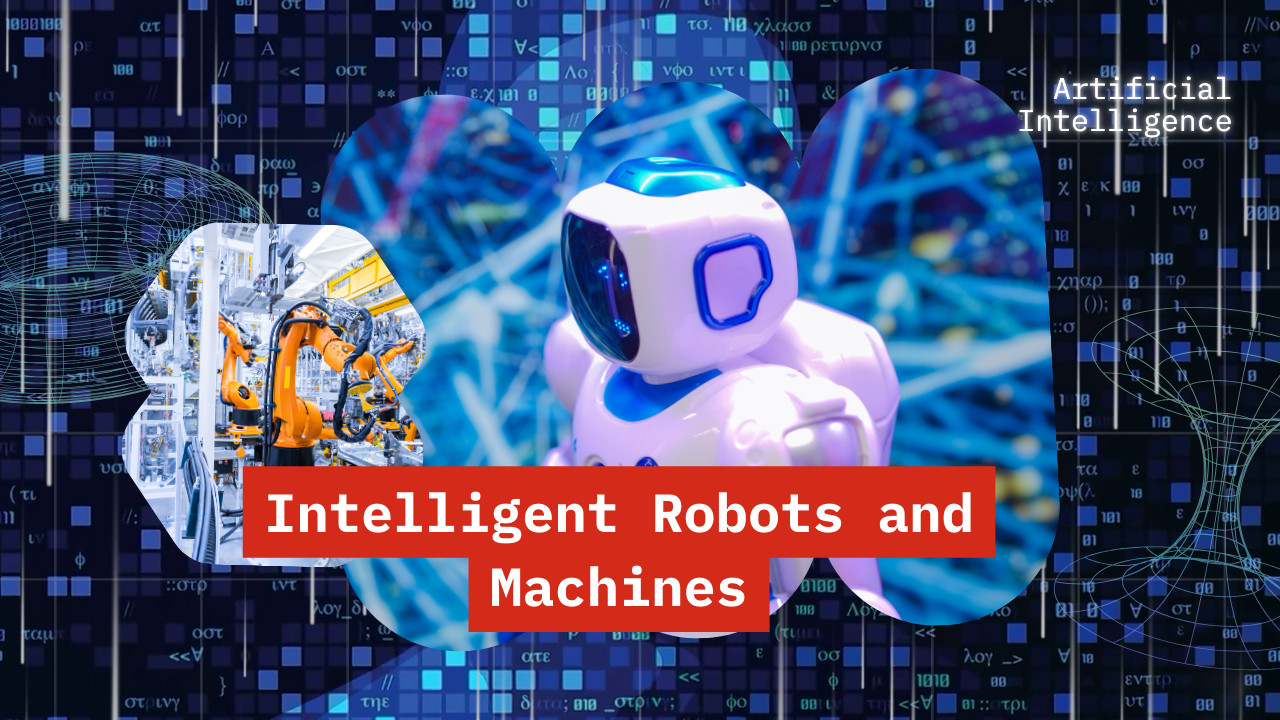In the evolving landscape of technological advancement, artificial intelligence (AI) emerges as a pivotal force that is set to amplify the influence of already powerful entities. Among these, two distinct groups stand to gain significantly: billionaires, with their vast resources and investment capabilities, and world leaders, who command nations and set the course for global policy. As AI continues to advance, these individuals are uniquely positioned to harness its capabilities, leveraging the technology to enhance their strategic objectives and consolidate their power. The billionaires can integrate AI into their industries and initiatives, optimizing operations and creating new avenues for wealth generation. Meanwhile, world leaders can utilize AI to bolster national security, streamline governance, and even engage in more sophisticated forms of diplomacy and conflict. The intersection of AI with the ambitions of these powerful groups signals a potential shift in the dynamics of power, one that could redefine the boundaries of influence in the modern world.
The landscape of power is undergoing a transformation, catalyzed by the rapid advancements in artificial intelligence (AI) technology. This evolution has bestowed upon the influential a tool of unprecedented capability—a synthetic intellect akin to a human brain. This digital mind is not bound by the constraints of organic thought processes; it can assimilate vast amounts of information, draw conclusions, and execute decisions with unparalleled precision. Unlike the human brain, which is shaped by subjective experiences and emotions, this AI-driven entity is characterized by its ability to learn, think, and decide with objective clarity. Moreover, it operates under the command of its creators, offering a level of obedience and reliability that further enhances its appeal to those in positions of power. As a result, the powerful now possess an asset that was once the stuff of science fiction—a tireless, ever-learning, and unwaveringly loyal extension of their will.
With the advent of this new artificial brain, the powerful are on the cusp of a revolution in capability and influence. The task at hand is no longer about developing the intelligence itself only, but rather about embedding it into a myriad of tools, devices, machines, and robots designed to fulfill specific functions. This integration process is the key to unlocking a virtually limitless workforce, one that can carry out both intellectual and manual tasks with equal finesse. Billionaires, with their vast resources, stand to benefit immensely, as they can deploy these intelligent agents in every conceivable domain, from the boardroom to the factory floor, ensuring that their enterprises run with unparalleled efficiency and innovation. Meanwhile, dictators and warmongers eye this technology with different aspirations, envisioning a future where wars are waged not by humans, but by obedient machines capable of executing their most ambitious and, often, most destructive strategies. This shift towards an automated workforce and mechanized military might is poised to redefine the landscape of labor and conflict, presenting a future where the power dynamics of the world are reshaped by the silent, tireless operations of artificial intelligence.
The convergence of AI with the ambitions of the powerful is poised to create a future where the scales of influence are tipped even further in favor of those at the top. As AI continues to evolve and integrate into every facet of human endeavor, the question remains: will this technology serve as a great equalizer, or will it become the ultimate tool of consolidation for power and wealth that already exists?
In this new age, the challenge for society will be to navigate the ethical and moral implications of AI’s use. It will be imperative to ensure that the benefits of AI are distributed equitably, and that the humanity at the heart of artificial intelligence is never overshadowed by the objectives of the few. The promise of AI is vast, but it must be tempered with a commitment to the greater good, not that the powerful become more powerful still, and the essence of what it means to be human is lost in the relentless march of progress.
Intelligent Robots and Machines

How much time departs us from intelligent machines and robots?
The integration of artificial intelligence into our daily devices, machines, and robots is a transformation that is unfolding at an impressive pace. The timeline for this evolution is influenced by a myriad of factors, including technological advancements, market demands, and societal readiness to embrace such changes.
Currently, AI is already a driving force behind emerging technologies like big data, robotics, and the Internet of Things (IoT). The advent of generative AI has expanded the possibilities and popularity of AI applications. A 2023 survey by IBM indicated that 42 percent of enterprise-scale businesses had integrated AI into their operations, with an additional 40 percent considering its adoption. This suggests a significant momentum in the corporate sector towards intelligent systems.
The future of AI is dynamic and ever-changing. It is anticipated that within the next decade, we will witness a substantial increase in the presence of AI across various devices. The state-of-the-art AI models, such as GPT-4 and its contemporaries, are multimodal, capable of processing not only text but also voice, images, and videos. This capability is expected to unlock a plethora of new applications, making AI an even more integral part of our lives.
Experts in the field of robotics express optimism about the steady progress towards more versatile and multi-functional robots. However, they also acknowledge that the vision of true general-purpose robots remains a distant reality. Breakthroughs in AI, machine learning, materials science, and control systems are needed to achieve true general-purpose embodied autonomy.
The International Federation of Robotics highlights the growing trend of using AI in robotics and automation. The emergence of generative AI opens up new solutions, indicating that the integration of AI into intelligent devices is not just a possibility but an ongoing process.
While it is challenging to pinpoint an exact timeline, the prospects for complete intelligent devices, machines, and robots are promising and likely to materialize progressively over the next decade. As AI continues to evolve, it will become more deeply embedded in the fabric of our technological society, transforming devices from mere tools to intelligent companions in our daily lives.
It can be predicted that within the next decade, robots and intelligent machines that can perform human tasks completely and accurately will be available.
Billionaires’ Dreams

The dawn of machines and robots powered by artificial intelligence (AI) and automation heralds a significant shift in the labor market, one that extends beyond intellectual tasks to encompass manual labor. This technological leap grants entrepreneurs and corporations the ability to deploy intelligent machines across a broad spectrum of jobs, reducing the reliance on human labor to an unprecedented minimum.
As intelligent technologies permeate various industries, they promise enhanced efficiency and productivity. However, this boon for business magnates translates into a potential bane for the workforce. The capability of AI to perform tasks once exclusive to human intellect and dexterity means that jobs across the board, from customer service to manufacturing, are susceptible to automation. This transition could lead to a seismic shift in the job market, where the demand for human workers dwindles, and the need for constant upskilling becomes the norm.
The concentration of these advanced technologies in the hands of billionaires and large corporations could exacerbate existing economic disparities. The wealth generated by AI-driven enterprises is likely to accumulate increasingly among those who own the means of production, potentially leading to a more pronounced wealth gap. As a result, billionaires could find their influence and power magnified, with wealth becoming even more concentrated than it is today.
The social consequences of such a shift are profound. A landscape where human labor is marginalized could lead to widespread unemployment and underemployment, with significant segments of the population finding themselves without a role in the traditional job market. This displacement may strain social welfare systems and heighten economic inequality, leading to increased social unrest and a reevaluation of the social contract.
Moreover, the displacement of workers by AI could have ripple effects throughout society, affecting everything from consumer behavior to political dynamics. As the need for human labor decreases, the very fabric of communities—often woven around shared employment experiences—could unravel, leading to a loss of social cohesion.
In response to these challenges, there is a growing discourse on the need for policies that can mitigate the adverse effects of automation. Ideas such as universal basic income, reskilling initiatives, and the taxation of robots are being debated as potential solutions to ensure that the benefits of AI and automation are shared more equitably across society.
While AI and automation present opportunities for growth and innovation, they also pose significant challenges to the job market and social stability. The impact of these technologies will likely be far-reaching, necessitating thoughtful consideration and proactive measures to ensure that the future of work is inclusive and equitable, and the wealth gap does not increase.
The Dictators and Warmongers’ Dreams

The advent of intelligent war machines and robots marks a profound shift in the nature of warfare, one that could significantly alter the balance of power on the global stage. These autonomous systems, driven by artificial intelligence, offer a new kind of might to those who control them—dictators and warmongers who seek to expand their influence without the traditional constraints of human armies.
The deployment of such machines in conflict zones represents a departure from conventional warfare. These intelligent agents can execute complex strategies with precision, operate in environments lethal to humans, and sustain efforts beyond the physical limits of human soldiers. For authoritarian leaders, the appeal is clear: a loyal, efficient, and tireless force that can be directed to achieve strategic objectives with minimal political cost.
However, the implications of this technological leap are far-reaching and fraught with ethical concerns. The absence of human judgment in the heat of battle raises questions about accountability and the potential for unchecked aggression. The Brookings Institution has highlighted scenarios where AI could exacerbate tensions and undermine deterrence, potentially leading to escalations that spiral out of control. The National Defense University Press warns of a future where warfare is so automated that it minimizes human control over decisions, a concept referred to as "Hyperwar".
Moreover, the ethical and strategic implications of autonomous weapons systems are a growing concern. The potential for unrestrained force and unmeasurable civilian casualties, as noted by experts, could violate international decrees at war. The integration of AI into decision-making in armed conflict also raises the specter of reduced human alertness and situational awareness.
The prospect of intelligent war machines also introduces new vulnerabilities. As more automated weapons systems are adopted, the risk of these weapons being turned against their own armies through cyberattacks increases. This adds a layer of complexity to military operations, where the strength of an army could be compromised by the very technology it relies on.
The prospect of a modern-day tyrant, akin to Hitler, rising to power with the support of an intelligent robotic army and a military industry underpinned by advanced machines, is a chilling scenario. The destructive potential of such a leader, equipped with the precision and unwavering obedience of AI-driven technology, could surpass the horrors of the past. This new breed of dictator would wield a form of power that is not only more efficient but also more detached from the human cost of war. The combination of historical ambition with contemporary technology could result in a force of unprecedented scale and capability, one that could execute strategies with a level of ruthlessness and efficiency that the original Hitler, constrained by the limitations of his time, could never have achieved. It is a sobering reminder of the dual-edged nature of technological progress and the imperative to ensure that such advancements are governed by a strong ethical framework to prevent history’s darkest chapters from repeating themselves with even greater ferocity.
Envisioning a regime where authority is enforced not by human officers but by a legion of intelligent robots presents a daunting picture of the future. In such a scenario, the grip of an authoritarian or dictatorial power is tightened, as these robotic enforcers operate with a level of efficiency and impartiality that human police forces cannot match. The presence of these machines, immune to persuasion and incorruptible by nature, could significantly diminish the populace’s ability to influence or alter the course set by their rulers. This technological might, when placed in the hands of a single ruling entity, has the potential to stifle dissent and suppress the collective will of the people, making the path to change or revolution an even more arduous journey. The implications of such a reality are profound, as they touch upon the very essence of freedom and the human capacity to shape one’s own destiny.
The availability of intelligent war machines and robots to dictators and warmongers presents a threat. It also poses significant ethical dilemmas and the potential for destabilizing global security. The challenge lies in navigating these waters with a keen eye on the moral compass, ensuring that the march of technology does not outpace our collective responsibility to uphold international norms and human dignity.
Conclusion
The trajectory of artificial intelligence (AI) and its integration into devices, machines, robots, and even the theater of war, is set to redefine the contours of power, labor, and conflict. The potential for AI to serve as a catalyst for increased efficiency and productivity is immense, yet it carries with it profound implications for the socio-economic fabric of society and the ethical considerations of warfare.
The rise of intelligent automation presents a paradoxical future where the abundance of technological capabilities could lead to a scarcity of opportunities for the human workforce. As AI becomes more deeply entrenched in various sectors, the risk of wealth concentration and social inequality looms large, threatening to create a chasm between the haves and the have-nots.
Simultaneously, the advent of AI-driven war machines offers a chilling glimpse into a future where conflicts are waged by unfeeling automatons, raising critical questions about the morality of such warfare and the preservation of human life and dignity.
As we stand on the cusp of this AI-driven era, it is imperative that we steer this powerful force with a conscientious hand. The decisions made today will shape the landscape of tomorrow, and it is our collective responsibility to ensure that the march of progress does not trample the values we hold dear. The challenge is to harness the potential of AI in a manner that promotes the well-being of all, promoting a future where technology serves humanity, and not the other way around. The journey ahead is as much about innovation as it is about introspection, demanding a balance between the pursuit of power and the pursuit of purpose.